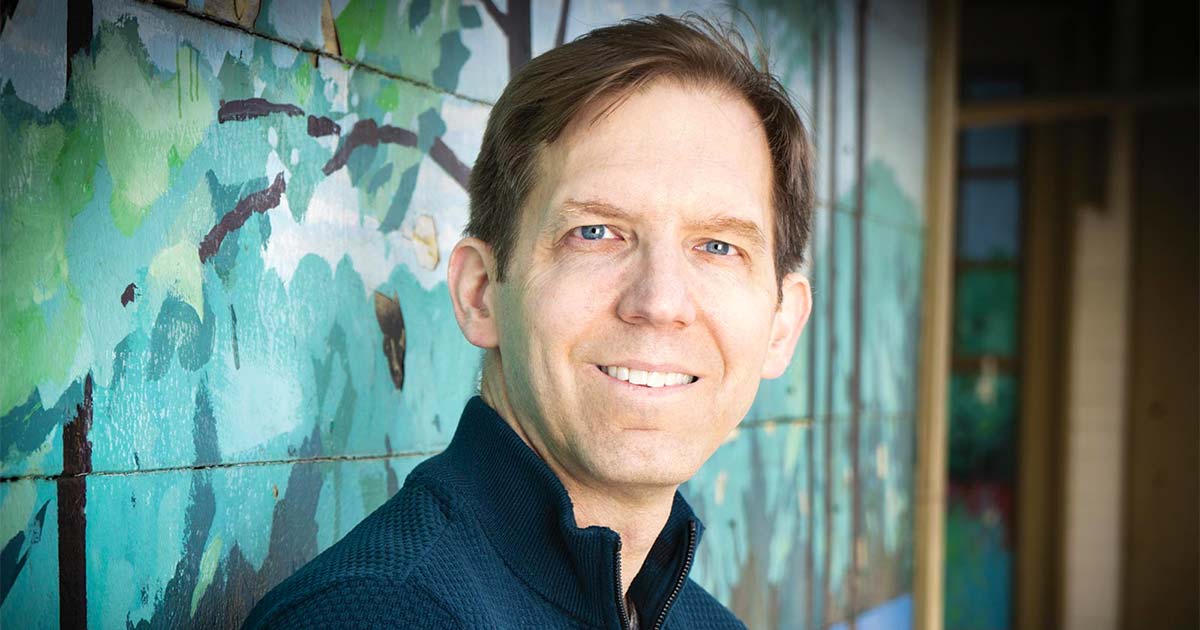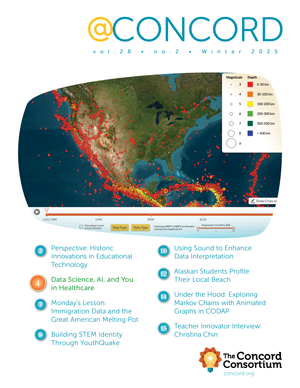Perspective: An Exercise in Humility
As the world gradually awakes from over a year of pandemic-induced suspended animation, I am grateful for something rare—a moment for reflection. What have we learned? What do we appreciate differently? While there are many lessons to be gained from looking back, the most important involve looking forward to consider how we can prepare the next generation for future challenges. We should ensure that the next generation gains from what we have learned. However, I believe the most important legacy we can leave lies in conveying a deep appreciation for all the things we don’t know.
The early stages of the pandemic provide an intriguing perspective on how people think—together and individually. A recent episode of “The Ezra Klein Show” interviewed sociologist Zeynep Tufekci, who advocated for a number of important actions at the onset of the coronavirus pandemic. Her comment addressing the importance of exponential functions in the context of viruses stuck with me: “It’s very hard for normal people to think about exponential growth, because it’s not ordinarily part of our everyday experience.”
This statement is deceptively profound, and resonates with me personally. My early experiences with the power of exponential growth remain vivid—I may have lived in the era of Star Wars and ICBMs, but exponentials kept me up at night, as I read predictions of global overpopulation and pondered math puzzles about rice grains multiplying on chessboards. Exponential functions are truly insidious, plodding along practically unnoticed for what seems like forever, then exploding—in a way that at first surprises, then shocks—in the blink of an eye.
The most compelling thing about exponential growth is that it makes starkly clear that the future is not always what we expect. This same lesson can be found in many places. In her timeless essay “Dancing with Systems,” systems thinking giant Donella Meadows describes her journey coming to appreciate the depth and nuance of complex systems and learning that “self-organizing, nonlinear feedback systems are inherently unpredictable. They are not controllable. They are understandable only in the most general way.” This means, she writes, that “the goal of foreseeing the future exactly and preparing for it perfectly is unrealizable.” In the end, Meadows notes, “we can’t surge forward with certainty into a world of no surprises, but we can expect surprises and learn from them.…We can’t impose our will upon a system.” While this may have the ring of an alarm bell, she writes from a place of hope, describing in poetic terms how humans can not only work within complex systems, but learn to “dance with them.”
Unfortunately, this is not a lesson humankind is particularly good at learning. The journalist and chronicler of the natural world John McPhee outlined specific cases of this kind of human vanity in his iconic book Control of Nature. His vivid descriptions of human attempts to control rivers and volcanoes in order to craft predictable outcomes demonstrate how easily hubris must give way to humility in the face of nature’s complex systems. When we face nature’s unpredictability, whether in the form of unruly exponentials or complex systems, experience becomes a crucial guide.
Non-scientists are no less aware of this dynamic. Food writer and minimalist cooking proponent Mark Bittman describes the four stages of learning to become a truly good cook. By the fourth stage, cooks have repeated basic recipes and their variations so many times that “many options are in your head and at your fingertips.” This, he argues, is how chefs ultimately learn—by drawing upon repeated experience. Cognitive scientists call this “case-based reasoning” and hold it up as a model of how experts approach the world. Intuition is an outcome of this same process; we reason and generalize from cases we have encountered in the past.
Although exponential functions and kitchen skills seem very different, they are both lessons in humility. Experience teaches us not only what we can do, but what we can’t. If we’re lucky, it also helps us gain the humility to apply the things we understand to situations we don’t and to appreciate the limitations involved. Scientists regularly employ formal uncertainties as part of their process. Whether measuring the length of a molecular bond or predicting the probability of the next earthquake, scientists report not only a number but also a range representing their degree of certainty with the measurement. This does more than merely communicate results accurately. Uncertainties serve as guardrails, shielding us from straying too far into the unknowable.
It turns out that delineating the unknown is often valuable. Thomas Edison insisted that he had never failed, but merely “discovered ten thousand ways that don’t work.” Sociologist Damon Centola discovered that the common assumptions about the “viral” spread of behaviors were fundamentally flawed. Acknowledging these longstanding errors and thinking differently, he proposes, could lead to revolutionary advances in our ability to understand and foster uptake of all types of behaviors, from mask wearing to agricultural or medical processes and beyond.
As we emerge from our pandemic stupor, what does this all mean for how we help prepare the next generation? Here’s my short list:
- Fear the exponential—learn about exponential functions both as a mathematical exercise and in real-world applications.
- Learn to dance with systems—embrace humility about the true complexity of complex systems.
- Acknowledge all that we usually don’t know—recognize and take note of the built-in uncertainty the natural world harbors in all places and situations.
- Find value in that unknown—remember that markers of the unknown can be jumping-off points just as easily as they can be guardrails.
- Expect surprises—by remaining humble, we can acknowledge and welcome the unexpected.
But how do we help students learn these big ideas? Just as the master chef repeats and varies fundamental recipes over and over, the key lies in experience. If students are to identify the world’s key principles, understand the dynamics of interdependence, and appreciate the importance and nuance of uncertainty, they need repeated, hands-on experiences. They need to push the boundaries as well as understand the guardrails.
Real-world experiments are essential for science learning. But many of the most critical ideas in our world defy direct interaction. How can learners interact with molecular bonding? Appreciate the complexity of a virus spreading worldwide? Watch the dynamic ramifications of tectonic plate shifts? Gaining experience with complex systems or intricate phenomena across scales of time and space is critical for appreciating the world we live in.
Fortunately, technology can enable this crucial inquiry, further vital exploration, and give learners agency—from models and simulations that reveal scientific phenomena to data visualization and system modeling tools that make it possible to find patterns. Students need repeated experiences and multiple opportunities to answer their own questions and identify the limits of knowledge and the uncertainties involved.
If we find the right combination of real-world and technology-enabled experiences, we can launch students on journeys of learning richer than ever before. Doing this provides the hope we can pass on to the next generation. If we equip students with a robust set of experiences, we prepare them to view the frontiers of knowledge as opportunities rather than limits. Students will have the confidence, and tools, to lean into a future of unknowns.
Chad Dorsey (cdorsey@concord.org) is President of the Concord Consortium.

